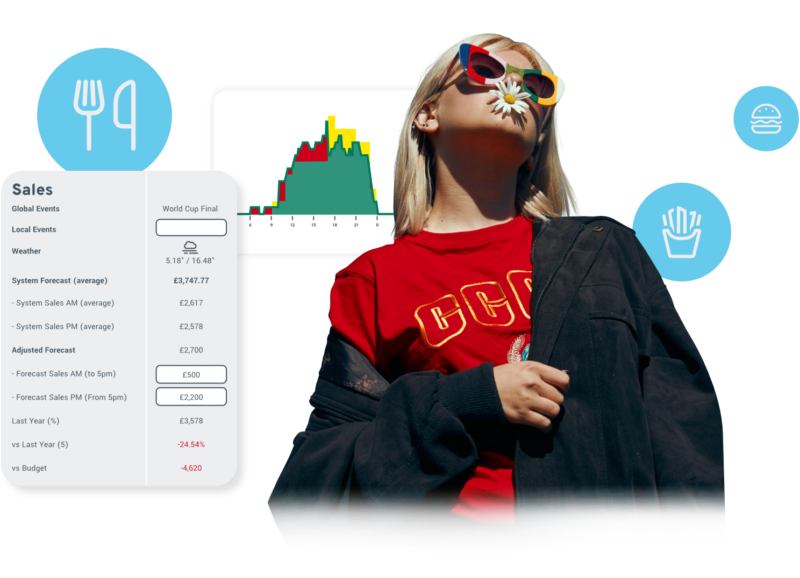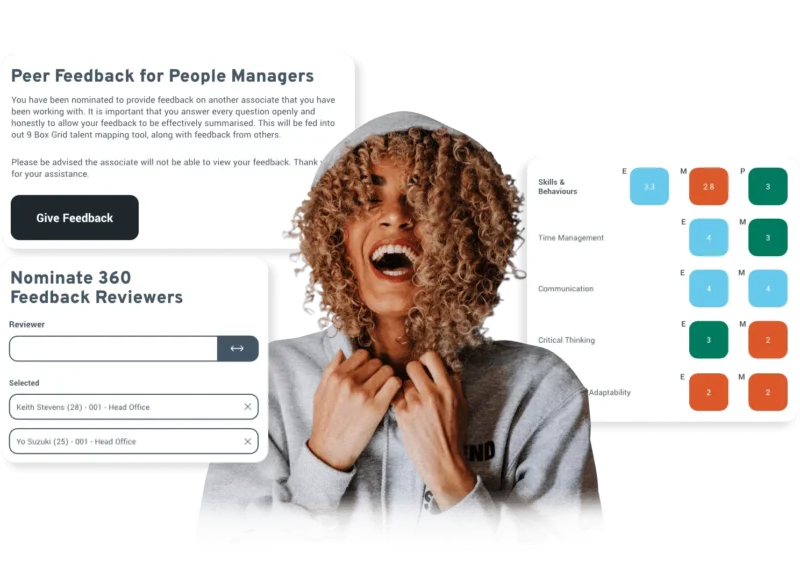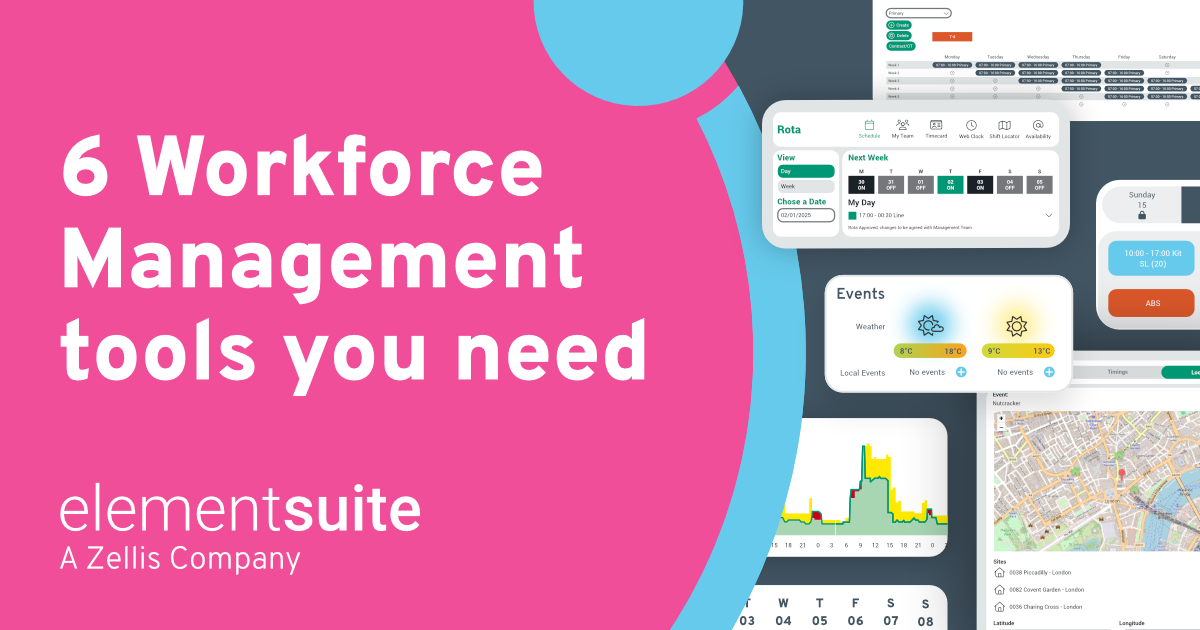Working in the casual dining industry brings its set of HR challenges, and let’s be honest – they’re not always easy to navigate. From juggling staff schedules to keeping up with ever-changing regulations, the responsibilities on your plate can seem endless. And when the quality of service and the happiness of your employees are at stake, the pressure to get it right is even higher.
HR professionals know the delicate balance required to keep things running smoothly. Whether it’s finding the right mix of full-time and temporary staff or ensuring your team is up to speed with the latest tech, these challenges can sometimes feel overwhelming.
That’s why we’ve put together this guide to help you tackle these issues head-on. We’ll dive into 7 of the most common HR concerns in the casual dining industry and offer practical, tech-driven solutions to make your life easier. With the right tools and strategies, you can enhance both employee satisfaction and service quality, ensuring your restaurant thrives in today’s competitive landscape.
1. Tackling staff shortages
We all know that finding and keeping the right staff is a tough nut to crack. The UK’s accommodation and food service sector had a vacancy rate of 5.1% in late 2023, a clear indication that staffing shortages are still a pressing issue.
When it comes to hiring, it is crucial to avoid the scramble to fill positions at the last minute. A reactive approach can lead to rushed choices and potential long-term inefficiencies. By consistently monitoring key workforce metrics throughout the year, such as staffing levels, turnover rates, and labour demand, you can maintain optimal workforce levels.
Using dashboards and reports, you can track metrics such as:
- Staffing levels: Assess whether your current workforce meets the ongoing needs of your business.
- Turnover rates: High turnover can be an indicator of underlying issues like employee satisfaction.
- Labour demand forecast: Predict the future needs of your organisation based on business growth, seasonal fluctuations, etc.
Tracking these metrics enables better planning for recruitment, ensuring that you can address any shortfalls before they become urgent.
2. Balancing full-time and part-time staff
Balancing your full-time and part-time workforce in the casual dining industry can feel like trying to hit a moving target. With the industry’s characteristic fluctuations in customer traffic – ranging from busy weekends and holidays to quiet weekdays – it’s essential to strike the right balance between flexibility and cost-effectiveness. The key is to ensure that you have enough staffing flexibility to handle peak times, but also to avoid being overstaffed during slower periods, which can drain profitability.
Part-time staff can provide the flexibility needed to scale up or down based on demand. For example, casual dining establishments often experience significant traffic increases during certain hours, like lunch and dinner rushes, or during specific days such as weekends and holidays. It’s also beneficial to cross-train part-time employees, so they can fill different roles as needed, further enhancing flexibility.
But maintaining a core group of experienced full-time employees is essential for workforce stability and consistency. Full-time staff can serve as team leaders or mentors to part-timers as well as lower the risk of errors in high-pressure situations with more experience.
Effective scheduling is critical when balancing these two groups. Forecasting tools can be used to predict busy periods based on historical data and forecast labour needs accordingly. This allows managers to ensure they have the right number of people on the floor without overstaffing.

It’s important to know that the right balance is not just about cost; it’s also about keeping both full-time and part-time employees engaged – when each may have different priorities. Full-time employees, for example, are more likely seeking job security and benefits, while part-timers might value flexible schedules to accommodate other commitments. Engaging with employees accordingly and offering clear career progression opportunities to both groups can boost morale and reduce turnover, ensuring that you have a stable, motivated team ready to meet customer demands.
3. Creating fair and efficient schedules
Managers and HR in the casual dining industry must account for fluctuating demand, peak hours, and sudden surges in customer traffic, all while ensuring that the team remains cohesive and motivated. At the same time, employees often have different availability and preferences, and ensuring fairness in shift allocation is critical for keeping morale high. A well-structured scheduling process not only ensures the restaurant runs smoothly but also helps retain staff, as employees feel valued when their time and preferences are respected.
Handling shift preferences, fairness, and last-minute changes can be a real challenge, especially in a fast-paced environment like casual dining where schedules can change from week to week. Technology can be a game-changer in this space. Tools like elementsuite’s Workforce Management enable managers to streamline this process by allowing employees to indicate their preferred shifts in advance, ensuring that their individual needs are taken into account. This automation helps distribute shifts more equitably, preventing any one employee from consistently receiving less desirable time slots or being overburdened during busy periods. When employees feel their preferences are respected, they are more likely to remain engaged and satisfied with their work.
In addition to fairness, flexibility is crucial in a dynamic industry where unforeseen events can lead to last-minute changes. The ability for employees to swap shifts easily using scheduling software can help avoid conflicts and minimise disruption to both their personal lives and restaurant operations. This flexibility not only reduces the headache for managers but also promotes a healthier work-life balance for employees, as they can adjust their schedules as needed.
4. Embracing new technologies
With 91% of UK restaurant owners now recognising the critical role of automation and 42% actively increasing their tech usage to address staffing challenges, it’s clear that technology has shifted from a luxury to a necessity in the casual dining industry. In a highly competitive and dynamic environment, automation not only helps streamline operations but also tackles persistent issues such as labour shortages, high turnover, and unpredictable customer demand. From automating scheduling and inventory management to using digital platforms for customer orders, technology is becoming an integral part of day-to-day operations. However, adopting new tools is only half the battle – ensuring your staff can effectively use them is the key to reaping the full benefits!
To make the most of this shift, it’s essential to focus on upskilling your team. Introducing new technology without adequate training can lead to confusion and inefficiencies. By providing employees with personalised and relevant training, you can equip them with the skills they need to navigate new systems confidently. When employees are comfortable with the tools they are using, they become more efficient, reducing errors and increasing overall productivity. In the long run, this investment in upskilling not only enhances operational efficiency but also boosts employee morale by empowering them to take on more responsibility and grow with the business.
5. Staying compliant
Staying compliant in the casual dining industry can often feel like a never-ending task, as regulations are constantly evolving, and the stakes are high for getting it right. From employment laws to GDPR regulations and health and safety standards, restaurant owners and managers need to be vigilant to avoid costly penalties, legal disputes, and reputational damage. Employment laws, for example, cover a wide array of topics such as minimum wage requirements, overtime, fair scheduling practices, and employee rights. Additionally, in today’s digital age, GDPR regulations add another layer of complexity, as restaurants increasingly handle customer data through online reservations, payment systems, and loyalty programs. Failing to protect this sensitive information can result in significant fines, making data compliance just as important as managing the workforce.
On top of employment and data privacy regulations, health and safety standards are critical, especially in an industry where food handling, kitchen safety, and hygiene are essential to daily operations. Staying compliant with food safety regulations requires strict protocols to avoid contamination, maintain cleanliness, and ensure that all employees are properly trained. Regular audits, inspections, and certifications are part of this process, making it essential to keep accurate records and documentation. Technology can help ease some of these burdens by automating compliance tracking, offering real-time updates on changing regulations, and ensuring that you can quickly adapt when new laws come into play.
Ultimately, maintaining compliance isn’t just about avoiding legal troubles – it’s about building trust with customers and employees, demonstrating that the business operates with integrity and a commitment to safety.
With an effective all-in-one HR system, you can centralise all your compliance documentation, track certifications, and even automate reminders for renewals. This not only keeps you in line with the law but also demonstrates your commitment to quality and safety.
6. Effective performance management
Performance management in the casual dining industry goes beyond simply tracking your employees’ day-to-day activities; it’s about creating an environment where they can develop their skills, feel valued, and contribute to the success of the business. In an industry where high turnover is common, a well-executed performance management system can be a powerful tool for improving employee retention and engagement. When employees receive clear expectations and regular, constructive feedback, they are more likely to feel empowered and supported in their roles. This structured approach not only helps employees identify areas for improvement but also highlights their strengths, which can boost confidence and job satisfaction. By consistently recognising and rewarding their efforts, you create a culture of appreciation that fosters loyalty and motivates employees to perform at their best.
Moreover, performance management should be an ongoing process rather than a once-a-year review. Frequent check-ins and open communication between management and staff ensure that issues are addressed in real-time and that employees feel their development is a priority. Tailoring feedback to individual employees’ goals and career aspirations can also play a crucial role in helping them grow within the company. For example, offering training opportunities or promoting from within shows a commitment to their personal and professional growth, which can increase long-term engagement. By investing in your employees’ development, you not only improve their performance but also contribute to the overall success of the restaurant, as a motivated, well-trained team directly impacts the quality of service and customer satisfaction.
Discover why Snowfox Group chose elementsuite to enhance employee engagement
7. Automating HR processes
HR tasks in the casual dining industry can often be overwhelming, especially when managing a workforce that typically includes a mix of full-time, part-time, and seasonal employees. From processing payroll, managing shift schedules, handling new hire paperwork, and tracking time-off requests, HR responsibilities in this fast-paced environment are often time-consuming and repetitive. These tasks can eat into valuable time that could be spent on higher-level initiatives such as employee development, retention strategies, and improving the overall guest experience. However, with the rise of automation tools specifically designed for the hospitality sector, much of the manual work traditionally associated with HR can be streamlined, freeing up valuable time for restaurant managers to focus on more strategic priorities.
See how ELLA can automate your HR processes
This is particularly beneficial in the casual dining industry, where staff schedules are often dynamic and subject to last-minute changes. Automation not only reduces the risk of human error but also increases efficiency, enabling managers to focus on improving team performance, creating a positive work culture, and ultimately enhancing the dining experience for customers. By shifting focus from repetitive tasks to more strategic HR initiatives, restaurants can create a more agile, responsive, and employee-centric environment.
Conclusion
The casual dining industry presents unique HR challenges that require a proactive, strategic approach to overcome. From balancing the mix of full-time and part-time staff to staying on top of ever-evolving regulations, the demands are high. However, by embracing automation, investing in employee development, and focusing on flexible yet structured performance management, restaurant managers can streamline operations and improve both employee and customer satisfaction. These tech-driven solutions not only alleviate the burden of repetitive HR tasks but also create opportunities to foster a more engaged and motivated workforce.
Ultimately, overcoming these challenges isn’t just about making HR tasks more manageable – it’s about building a strong, resilient team that is equipped to deliver exceptional service, even in the face of high turnover and fluctuating demand. By adopting the right tools and strategies, casual dining establishments can thrive in a competitive market, delivering great experiences for both employees and customers. With a focus on efficiency, compliance, and employee satisfaction, you can be better positioned to grow your business, maintain a positive work culture, and keep your restaurant running smoothly in today’s fast-paced environment.




